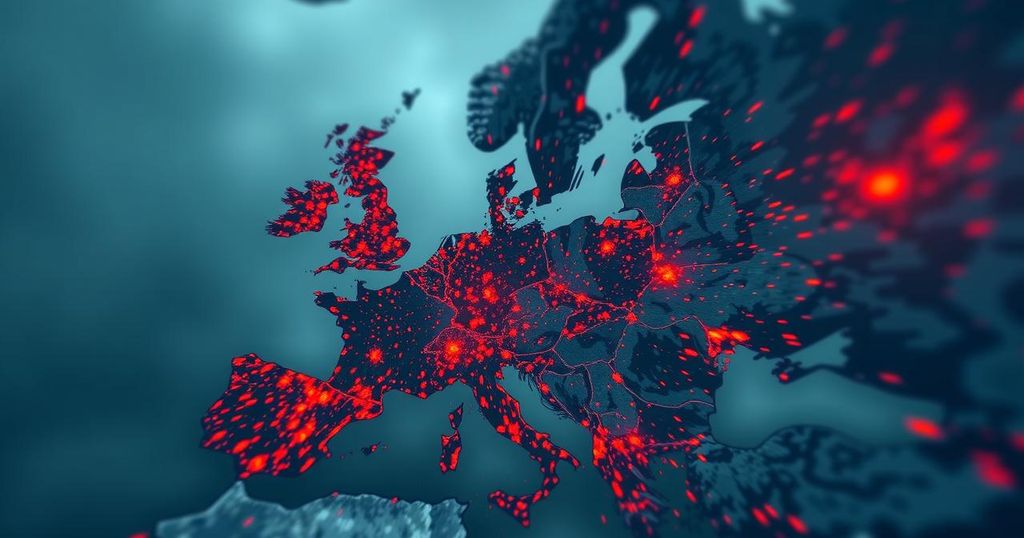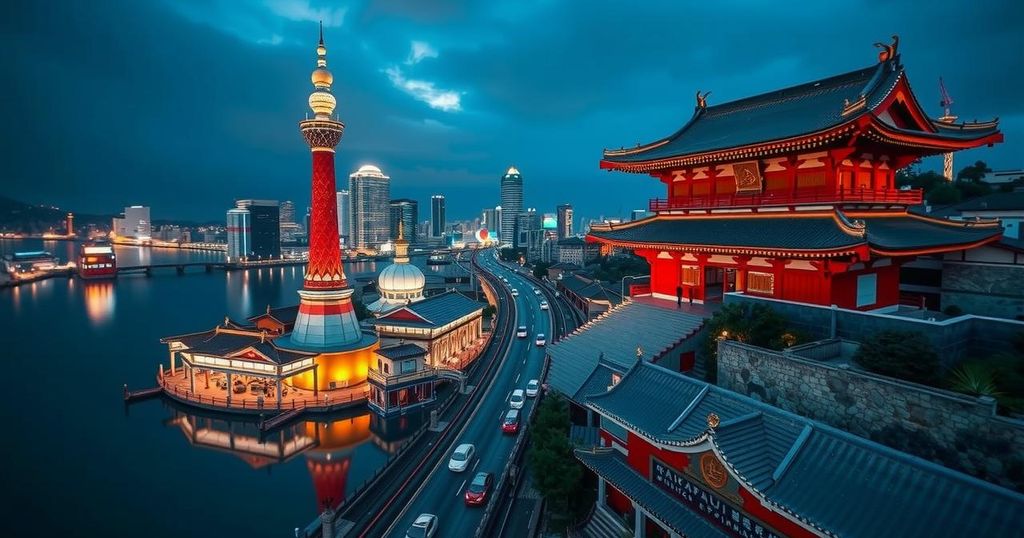SVG Prime Minister Gonsalves Advocates for Maduro’s Presidency as Beneficial for Guyana’s Oil Sector
Summary
Dr. Ralph Gonsalves, Prime Minister of Saint Vincent and the Grenadines, asserts that Nicolás Maduro’s presidency benefits Guyana’s oil sector while advocating for peace and dialogue over military conflict. He emphasized the historical challenges posed by Venezuelan right-wing opposition, expressed confidence in the fairness of recent Venezuelan elections, and highlighted the necessity for regional stability against the backdrop of American influence in Latin America.
Dr. Ralph Gonsalves, the Prime Minister of Saint Vincent and the Grenadines, recently expressed his belief that the tenure of Nicolás Maduro as President of Venezuela aligns with the best interests of Guyana, particularly in relation to its burgeoning oil industry. During his visit to Guyana on Saturday, which coincided with the funeral of esteemed statesman Sir Shridath Ramphal, Dr. Gonsalves asserted that the Venezuelan populace’s rejection of right-wing opposition aims to enhance the security of Guyana’s oil sector. He advised that despite the current political climate, having Maduro in power may be preferable. “If you have a choice between Maduro and the right wing in Venezuela, I advise you to choose Maduro. The right wing will seek to allow the Americans to take the oil in Venezuela, to set up to take over PDVSA (State oil company) and try to run Guyana’s oil industry from Caracas,” he stated. Moreover, he emphasized his commitment to peaceful resolutions, declaring his opposition to any military actions by Venezuela toward Guyana and advocating for dialogue as a means of conflict resolution. Dr. Gonsalves, known for his historic ties to the leftist PPP and as a long-standing leader within the Caribbean Community (CARICOM), highlighted the adversarial relationship the Venezuelan right-wing has historically maintained towards Guyana, particularly regarding claims over the Essequibo Region. He defended his assessment that Venezuela’s elections on July 28, 2024, were fair, reflecting on the disproportionate influence the United States has historically exerted on democracy in Latin America, stating, “America can’t teach me about elections and democracy.” Despite calls from Guyana and Suriname for verification of Venezuelan election ballots, dissent arose from the United States’ ambassador to Guyana, who expressed disappointment in some regional leaders’ stances. Gonsalves reiterated his view of the U.S. as a friend, despite the complexities of American influence in the region, emphasizing the need for [the U.S. to move beyond historical legacies regarding its regional engagements].
The political dynamics between Venezuela and Guyana have historically been complex, centered around territorial disputes and the management of oil resources, especially in light of increasing investments from the United States in the South American oil sector. Nicolás Maduro’s presidency has been contentious, drawing both domestic and international scrutiny, particularly regarding election integrity and political opposition. Dr. Ralph Gonsalves’s remarks reflect a broader Caribbean perspective on regional stability and cooperation, attempting to balance relations with Venezuela against external pressures from larger powers like the United States. The declarations made by Gonsalves during his recent visit are part of the ongoing discourse about the implications of Maduro’s leadership on neighboring nations and the need for a peaceful diplomatic solution to regional tensions, including the longstanding claims over the Essequibo Region.
In summary, Dr. Ralph Gonsalves’s position highlights the perceived benefits of Nicolás Maduro’s presidency for Guyana’s oil sector amidst increasingly intertwined regional dynamics. His advocacy for peace and dialogue underscores a commitment to addressing potential conflicts through diplomatic channels while recognizing the historical complexities of U.S.-Latin American relations. The statements made during his visit reflect an ongoing discourse about the importance of regional stability and collaboration in the Caribbean. Furthermore, Gonsalves’s insights may contribute to future dialogues around sovereignty and the management of natural resources, reinforcing the nuanced roles of Caribbean nations in a rapidly changing geopolitical landscape.
Original Source: caribbean.loopnews.com








Post Comment